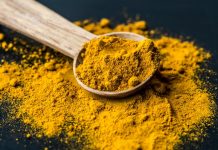
Chronic pain can be a daily struggle, affecting millions of people worldwide.
While medication is often part of pain management, dietary strategies can play a crucial role in alleviating discomfort and improving overall well-being.
In this review, we’ll explore how certain foods and dietary choices can help provide relief from chronic pain.
Chronic pain is characterized by persistent discomfort that lasts for weeks, months, or even years.
Conditions such as fibromyalgia, osteoarthritis, and neuropathy can cause chronic pain, significantly impacting one’s quality of life. Beyond medication and physical therapy, dietary changes can offer additional support in managing pain.
Dietary Strategies for Chronic Pain Relief
Anti-Inflammatory Foods: Chronic pain is often linked to inflammation in the body. Consuming anti-inflammatory foods can help reduce inflammation and relieve pain.
Turmeric: Curcumin, found in turmeric, has powerful anti-inflammatory properties. Studies, including one in the “Journal of Medicinal Food,” have shown curcumin’s potential to alleviate pain in various conditions.
Fatty Fish: Omega-3 fatty acids in fish like salmon and mackerel have anti-inflammatory effects. Research published in “Pain Management Nursing” suggests that omega-3 supplementation can reduce pain intensity in chronic pain patients.
Whole Grains and Fiber: Foods rich in whole grains and fiber can help regulate blood sugar levels, which can impact pain perception. Stable blood sugar levels may help prevent pain spikes.
Whole Grains: Opt for whole grains like brown rice, quinoa, and oats. A study in the “American Journal of Clinical Nutrition” reported that a diet high in whole grains may reduce pain sensitivity.
Legumes: Beans, lentils, and chickpeas are excellent sources of fiber. A study in the “Journal of Pain Research” indicated that a high-fiber diet may have a positive impact on chronic pain.
Antioxidant-Rich Fruits and Vegetables: Fruits and vegetables packed with antioxidants can combat oxidative stress, which contributes to chronic pain conditions.
Berries: Blueberries, strawberries, and cherries are loaded with antioxidants. Research in the “Journal of Nutrition” showed that cherry consumption reduced pain in individuals with osteoarthritis.
Leafy Greens: Spinach, kale, and other leafy greens contain antioxidants like vitamin C. A study in the “Journal of Alternative and Complementary Medicine” found that vitamin C supplementation reduced pain in fibromyalgia patients.
Research Evidence
Numerous studies have investigated the effects of dietary strategies on chronic pain management:
A study in the “Journal of Pain Research” reported that a high-fiber diet was associated with lower pain severity and improved quality of life in individuals with fibromyalgia.
Research in the “Journal of Clinical Rheumatology” demonstrated that omega-3 supplementation reduced pain and improved function in patients with rheumatoid arthritis.
A systematic review in the “European Journal of Nutrition” found that curcumin supplementation had positive effects on pain and function in osteoarthritis patients.
Incorporating Dietary Strategies: Incorporating pain-relieving foods into your diet can be a valuable addition to your pain management plan:
Balanced Diet: Aim for a well-rounded diet rich in fruits, vegetables, whole grains, lean proteins, and healthy fats.
Stay Hydrated: Proper hydration is essential for overall health and pain management.
Limit Processed Foods: Minimize consumption of processed foods high in sugar, unhealthy fats, and additives, which may exacerbate inflammation and pain.
Monitor Triggers: Pay attention to foods that may trigger pain or discomfort in your specific chronic pain condition. Everyone’s pain triggers can be unique.
Conclusion
Dietary strategies can be a valuable tool in managing chronic pain, offering additional support alongside medical treatments and therapies.
Incorporating anti-inflammatory foods, whole grains, fiber, and antioxidant-rich fruits and vegetables into your diet may help reduce inflammation, regulate blood sugar, and combat oxidative stress—all factors that can contribute to chronic pain.
As with any pain management approach, it’s essential to work closely with healthcare professionals to tailor your dietary choices to your specific needs and conditions.
By making mindful dietary choices, you can take a proactive step toward finding relief from chronic pain and improving your overall well-being.
Follow us on Twitter for more articles about this topic.
Copyright © 2023 Scientific Diet. All rights reserved.








